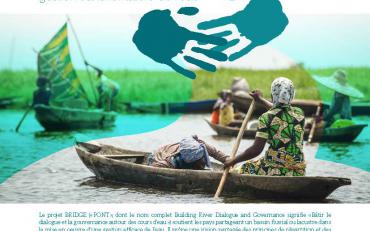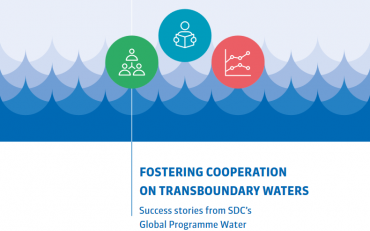Financed by the Water Diplomacy Programme of the Swiss Agency for Development Cooperation (SDC), BRIDGE (Building River Dialogue and Governance) initiative aims to build water governance capacities through learning, demonstration, leadership, and consensus-building, in particular in transboundary river basins.
Over 276 lake and river basins in the world stretch across multiple nations, accounting for an estimated 60 per cent of global freshwater flow. Good transboundary water management is crucial for peace, health, and prosperity.
Launched in 2011, BRIDGE uses five strategic pillars to facilitate improved transboundary water governance: demonstration, advice and support, leadership, dialogue, and learning. the project has expanded its work from nine to fourteen transboundary basins across the world.
Around 60% of the world’s international river basins lack any type of cooperative management framework. "As part of IUCN’s strategy for biodiversity conservation, we see as one of our key pillars is to help countries and stakeholders put in place good water governance” says Mark Smith, Director IUCN Global Water Programme.
Case studies on the different BRIDGE basins, and thematic briefings on topics such as Water Diplomacy and Treaties and Agreements, have been developed and disseminated to support knowledge sharing. A dedicated web portal, the BRIDGE Water Law and Governance Support Platform, offers legal expertise and technical support on water governance.
“A wealth of information and knowledge has been collected over the years through the BRIDGE project”, said Isabelle Fauconnier, IUCN Water Policy and Sustainability Advisor, “However, what has been less evident is capturing the bounty of dialogue and learning that happens during the BRIDGE practical learning workshops.”
Masterminded by Alejandro Iza, IUCN Environmental Law Director, BRIDGE workshops rely on a set of fictional basins and conflict and cooperation scenarios, which participants use as practical exercises to hone newly acquired skills and knowledge in negotiations and benefit-sharing. They equip participants, who range from basin managers to government officials, business representatives to community leaders, with new skill sets needed for improving transboundary water governance. These exchanges also open new spaces for informal dialogue between stakeholders not usually gathered around the same tables.
Results and tools from the BRIDGE initiative are used to promote implementation of improved water governance and transboundary cooperation in the participating regions – the Andes, Africa, Mesoamerica and Mekong. Lessons learned will be shared globally to support applications in other key transboundary hot spots for water diplomacy.

